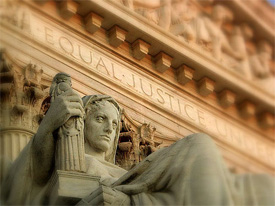If by “Big Data” You Mean “Big Campaign Donations”
President Obama has named the people who will help John Podesta accomplish this task.
I have also asked my Counselor, John Podesta, to lead a comprehensive review of big data and privacy. This group will consist of government officials who—along with the President’s Council of Advisors on Science and Technology—will reach out to privacy experts, technologists and business leaders, and look at how the challenges inherent in big data are being confronted by both the public and private sectors; whether we can forge international norms on how to manage this data; and how we can continue to promote the free flow of information in ways that are consistent with both privacy and security.
As I said in my annotations to Obama’s speech, effectively Obama responded “to a review by calling for another review,” but at least it would be a welcome first time he reached out to technologists.
Here’s the list:
That’s why in his speech, the President asked me to lead a comprehensive review of the way that “big data” will affect the way we live and work; the relationship between government and citizens; and how public and private sectors can spur innovation and maximize the opportunities and free flow of this information while minimizing the risks to privacy. I will be joined in this effort by Secretary of Commerce Penny Pritzker, Secretary of Energy Ernie Moniz, the President’s Science Advisor John Holdren, the President’s Economic Advisor Gene Sperling and other senior government officials.
I’ll outsource judging whether this amounts to reaching out to technologists to Chris Soghoian:
None of the big names named in the president’s “big data” review announcement are technologists. DC at its finest.
But I’m particularly interested in Penny Pritzker’s presence on the list.
After Cass Sunstein and Geoffrey Stone ended up being too independent to deliver the whitewash Obama wanted, he has picked one of his biggest campaign donors to review Big Data.
So I guess by “Big Data” we know what Obama meant.
Worse still, Pritzker heads up an Agency that — it is increasingly clear — serves a key role in offering carrots and sticks to coerce compliance from private companies with government data demands. And compliance not just for the purposes of defense of spying, but also for cyberoffense. Not exactly the kind of person who might expect candor from the Big Data companies likely to be coerced by the government.

